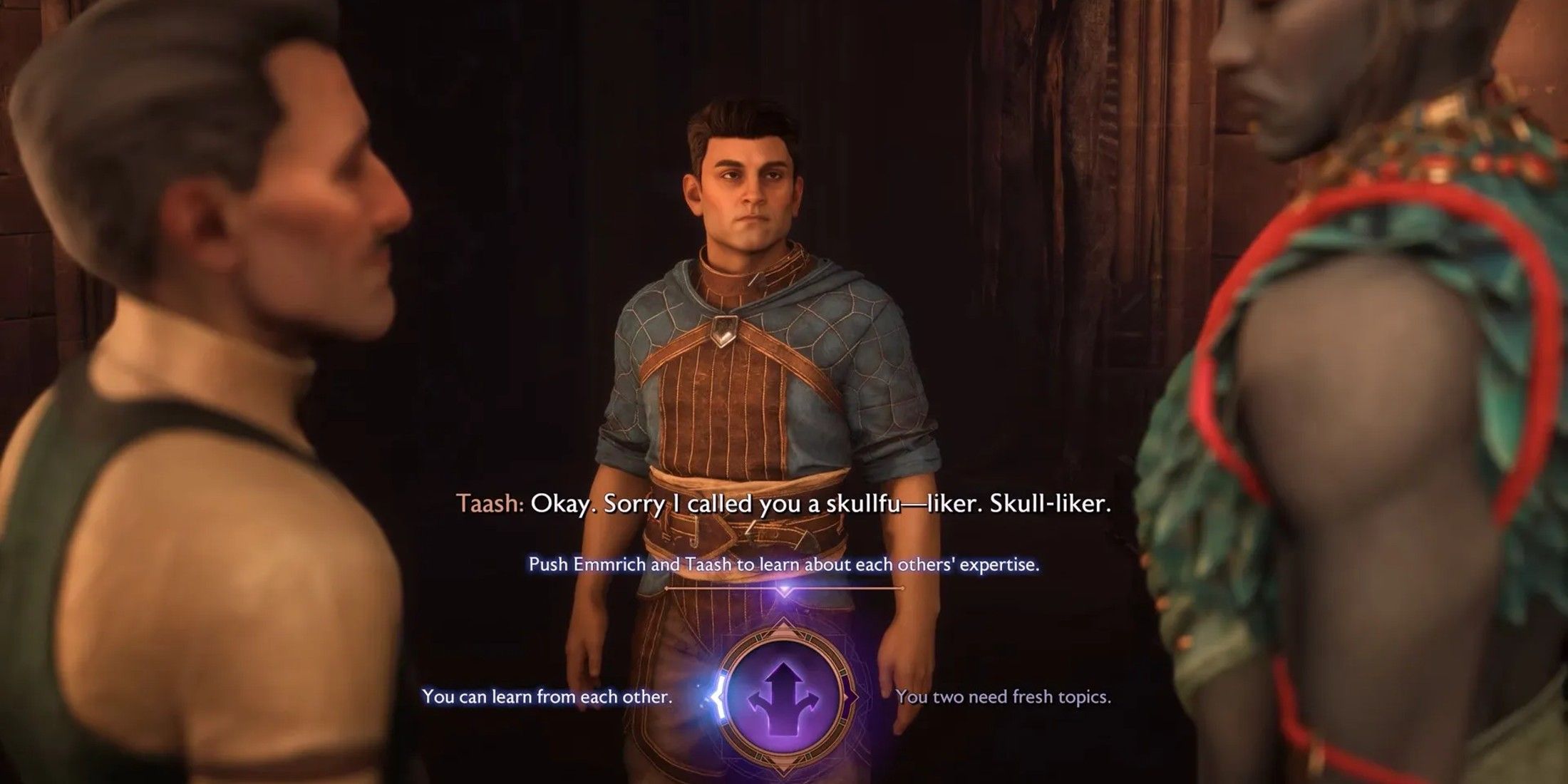In Dragon Age: Inquisition, the dialogue system plays a vital role in shaping the player’s experience, influencing both relationships with companions and the overall narrative of the game. Through strategic choices, players can engage in significant character dynamics and decide the outcome of complex storylines.
Types of Choices
The dialogue wheel in Dragon Age: Inquisition provides a variety of options, each categorized by tone and intent, such as:
– Questions: These choices aim to gather information, enriching your understanding of characters and the lore.
– Flirt/Romance: Marked with a heart symbol, these options are essential for building romantic relationships with certain companions.
– Sarcastic/Witty: These responses can inject humor into conversations but may risk disapproval from more serious companions.
– Aggressive: Aggressive choices could provoke conflict or alter companion approval negatively.
– Monetary/Bribery: Such options can influence conversations in a practical sense, but may reflect poorly depending on the companion’s values.
Each choice can either propel the conversation forward, conclude it abruptly, or even lead to combat, depending on the context and characters involved.
Companion Approval
Companion approval is crucial as every dialogue choice impacts how companions perceive you. A higher approval rating enhances their loyalty and effectiveness in combat, while also influencing personal dialogue and potential romances. For instance, Cassandra appreciates choices that support soldiers and moral decisions, while Varric favors a more adventurous approach with pragmatism. Understanding these dynamics is essential for maintaining strong relationships.
Romance Development
Building a romance with a companion requires careful navigation of available flirtatious dialogue choices and alignment with their personal values throughout the game’s narrative, especially during personal quests. It is pivotal to consistently convey interest using the flirt-tagged options and maintain alignment with the companion’s preferences to avoid jeopardizing the relationship.
Decision Points
Key Decision Points during the storyline can significantly alter the narrative trajectory and companion reactions. Decisions, such as whether to ally with mages or conscript them, elicit strong and distinct responses from companions. For example, aligning with mages may please Solas and Vivienne, while Cassandra may express disapproval, creating a polarized dynamic that encourages careful consideration.
Political and Story Branching
Dialogue choices extend beyond personal relationships to affect broader political themes and strategic outcomes within the Inquisition. Choices made during diplomatic missions, such as navigating the Orlesian Civil War or engaging with Solas about lore, can reshape alliances, resources, and ultimately impact the game’s ending.
Summary
The dialogue system in Dragon Age: Inquisition is meticulously designed to affect multiple layers of gameplay, including:
– Relationship Dynamics: Building rapport and potentially romantic relationships with companions based on approval ratings.
– Political Direction: Influencing the political landscape and strategic decisions of the Inquisition.
– Storytelling: Determining story outcomes and companion loyalty, impacting quest resolutions and ultimate endings.
To achieve a fulfilling playthrough experience, players should strategically select dialogue options that resonate with companion values, make impactful decisions during critical moments in the narrative, and consistently express romantic intentions where applicable. The interplay of these factors creates a rich and engaging gameplay experience, enhancing the depth of Dragon Age: Inquisition.






Leave a Reply